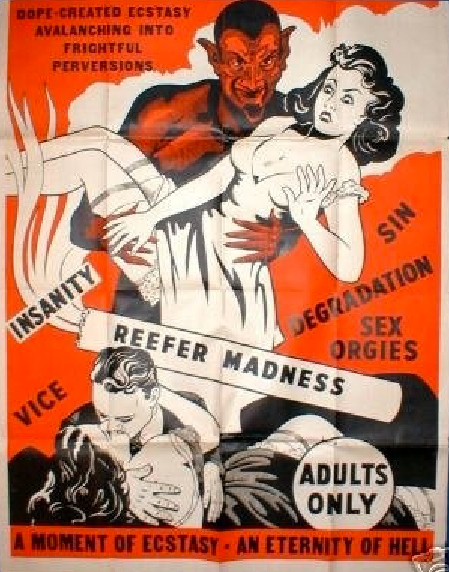

Posted on 07/01/2016 6:11:28 AM PDT by Wolfie
Marijuana compound removes toxic Alzheimer's protein from the brain
An active compound in marijuana called tetrahydrocannabinol (THC) has been found to promote the removal of toxic clumps of amyloid beta protein in the brain, which are thought to kickstart the progression of Alzheimer's disease.
The finding supports the results of previous studies that found evidence of the protective effects of cannabinoids, including THC, on patients with neurodegenerative disease.
"Although other studies have offered evidence that cannabinoids might be neuroprotective against the symptoms of Alzheimer's, we believe our study is the first to demonstrate that cannabinoids affect both inflammation and amyloid beta accumulation in nerve cells," says one of the team, David Schubert from the Salk Institute for Biological Studies in California.
Schubert and his colleagues tested the effects of THC on human neurons grown in the lab that mimic the effects of Alzheimer's disease.
If you're not familiar with this special little compound, it’s not only responsible for the majority of marijuana's psychological effects - including the high - thanks to its natural pain-relieving properties, it’s also been touted as an effective treatment for the symptoms of everything from HIV and chemotherapy to chronic pain, post traumatic stress disorder, and stroke.
In fact, THC appears to be such an amazing medical agent, researchers are working on breeding genetically modified yeast that can produce it way more efficiently than it would be to make synthetic versions.
The compound works by passing from the lungs to the bloodstream, where it attaches to two types of receptors, cannabinoid receptor (CB) 1 and 2, which are found on cell surfaces all over the body.
In the brain, these receptors are most concentrated in neurons associated with pleasure, memory, thinking, coordination and time perception, and usually bind with a class of lipid molecules called endocannabinoids that are produced by the body during physical activity to promote cell-to-cell signalling in the brain.
But THC can also bind to them in much the same way, and when they do, they start messing with your brain's ability to communicate with itself. The can be a good and a bad thing, because while you might forget something important or suddenly be incapable of swinging a baseball bat, you'll probably feel amazing, and want to eat all the snacks.
Over the years, research has suggested that by binding to these receptors, THC could be having another effect on ageing brains, because it appears to helps the body clear out the toxic accumulations - or 'plaques' - of amyloid beta.
No one's entirely sure what causes Alzheimer's disease, but it’s thought to result from a build-up of two types of lesions: amyloid plaques and neurofibrillary tangles.
Amyloid plaques sit between the neurons as dense clusters of beta-amyloid molecules - a sticky type of protein that easily clumps together - and neurofibrillary tangles are caused by defective tau proteins that clump up into a thick, insoluble mass in the neurons.
It’s not clear why these lesions begin to appear in the brain, but studies have linked inflammation in the brain tissue to the proliferation of plaques and neurofibrillary tangles. So if we can find something that eases brain inflammation while at the same time encourages the body to clear out these lesions, we could be on the way to finding the first effective treatment for Alzheimer's ever.
Back in 2006, researchers at the Scripps Research Institute found that THC inhibits the formation of amyloid plaques by blocking the enzyme in the brain that produces them, and now Schubert and his team have demonstrated that it can also eliminate a dangerous inflammatory response from the nerve cells, ensuring their survival.
"Inflammation within the brain is a major component of the damage associated with Alzheimer's disease, but it has always been assumed that this response was coming from immune-like cells in the brain, not the nerve cells themselves," says one of the team, Antonio Currais.
"When we were able to identify the molecular basis of the inflammatory response to amyloid beta, it became clear that THC-like compounds that the nerve cells make themselves may be involved in protecting the cells from dying."
It's exciting stuff, but it's so far only been demonstrated in neurons in the lab, so the next step will be for Schubert and his team to observe the link between THC and reduced inflammation and plaque build-up in a clinical trial. And they've reportedly already found a drug candidate called J147 that appears to have the same effects as THC, so this might be the way they can test the effects of THC without the government getting in the way.
The results have been published in Aging and Mechanisms of Disease.
So, based on your criteria you are opposed to the legalization of opioids and alcohol too?
After quitting it took me several years for the effects to totally go away. I think your on to something with the lung cancer, pot is packed full of carcinogens.
Uh, “science”, yeah, right.
The manifold claims for THC in this “scientific” article, make it sound like the new wonder snake oil, as it seems to cure everything from alopecia to halitosis.
As is any carbon based smoke, be it from a camp fire, a banana peel, whatever. Its the repeated use that gets you. I still have issues with short term memory loss, which frustrates Mrs. Cport to no end. She knew me from before I engaged in daily use, and having never used, she does not understand my inability to recall conversations and appointments. I am heavily dependent on my cell phone calendar to remind me of the most mundane things, such as remembering that tomorrow is water day for the kids at summer camp.
All that being said, I am also of the belief that occasional use, as with drinking, is not societally detrimental, and that valid medical benefits, as with any drug, should be explored and not rejected reflexively due to some anti-intoxicant bias. People should be able to self medicate in a free society, unless it has been proven to infringe on another's rights.
Thanks for clarifying.
Whatever impairment to the memory marijuana causes is a lot milder than the effects of Alzheimers.
Cuz I don’t want people to get dementia....wow. Aren’t you a jerk in this case.
That self medication does effect others. Like that news reader couple that almost killed their baby this week out in Tucson.
Colorado is going to have a lot of Boomer mischief for decades to come, then. The oldest Boomer is now 70. The youngest is only 52.
Therein is my problem with the deranged marijuana crowd that thinks its the second coming of penicillin. If they would just come out and say they like it because it gets them high, it would be ok. More power to you. That’s part of living in a free society—you should be free to put whatever you want in your body, but be ready to also face the consequences to such behavior.
There has been very little research (peer reviewed scientific research, and large sample size testing, not High Times articles) that accurately addresses the medicinal nature of marijuana. Keep in mind that one point in time smoking cigs was supposed to be great for a upper respiratory infection, and cocaine was good for a sore throat.
What’s the net effect?
And what about people that smoke joints that don’t have alzheimerz?
And vibrators were used to treat ‘hysteria’ in married women ... medical science marches on don’tchaknow.
Well, from the perspective of a chronic pain person with an incurable condition, it seems to me that they are able to isolate & minimize the “high” side of it. But I’m guessing that Alzheimer’s patients don’t drive now & would be happy for relief from the not remembering.
One of the bonus conditions that comes with my RSD is memory problems. I’d be happy for some relief. My circle of life is very small. I only go out to the monthly dr appointments or a big family thing. I can drive if I’ve not taken certain meds but I go to the pharmacy! My walking is very limited. Many docs say THC would help us but they say it under their breaths because it is illegal, at least here in Indiana. I do know folks who drive to get lozenges or candy to help with insomnia.
Actually I’ve been close to both. Those with Alsheimer’s were sick through no fault of their own. The pot smoker’s were voluntarily stupid and in denial. Pot smokers, like all addicts will defend their habit against all reason.
The current “science” whose findings inspired this article is nothing more convenient results for a new money making venture. If only weed supporters and smokers could be the only victims of impaired surgeons, bus drivers, etc., etc.


Where did you get your M.D. degree?
Marijuana is a huge cash crop so they would be wise to jump on the band wagon
Disclaimer: Opinions posted on Free Republic are those of the individual posters and do not necessarily represent the opinion of Free Republic or its management. All materials posted herein are protected by copyright law and the exemption for fair use of copyrighted works.